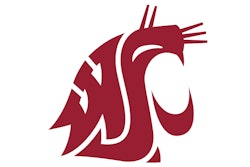
A proposed new stadium for the Kansas City Royals continues to create controversy, as a new county memo appears to reflect inflated numbers, this time largely in the form of insurance costs for the facility.
The leaked memo from Jackson County claimed that the stadium would cost between $4.37 billion and $6.42 billion — however, reports last month indicated that an error in a spreadsheet was to blame for inflating the projected cost to $6.41 billion. The actual estimated cost should have been about a billion less: $5.13 billion.
The multibillion-dollar price tag would still understandably give taxpayers pause, but the issues with the county’s leaked numbers go deeper than poor bookkeeping, which double counted the revenue a 3/8-cent sales tax extension would generate, KSHB-TV reported Sunday. The bigger issue is what some say are inflated property insurance costs.
Related: 'Formula Error' May Account for $1.2B Overestimate on Royals Stadium
Currently, Jackson County pays the premiums at the Truman Sports Complex, which also includes GEHA Field at Arrowhead Stadium, as part of its insurance package for county-owned buildings, KSHB-TV reported.
The estimated premiums for both stadiums went from $495,482 in FY 2016-17 up to nearly $2.17 million. But the leaked spreadsheet assumes that the county will be on the hook for $4.5 million for a new Royals stadium alone in 2028, when the team is aiming to move into a new stadium.
The new numbers indicated that of the projected $4.37 billion to $5.13 billion cost the county would be obligated to pay, according to the leaked memo, nearly $3 billion is for insurance premiums at a new baseball stadium alone. By the county’s estimate, insurance premiums alone would top $100 million per year for the last decade of the projected lease agreement, topping out at $271 million by 2071.
Former Jackson County Legislator Dan Tarwater, who works in the insurance industry, was skeptical of those figures, KSHB-TV reported. He didn’t believe property insurance would be that high on a new building and suggested that the assumption premiums would increase a staggering 10 percent annually compounded over a projected 40-year lease was laughable.
Jackson County Administrator Troy Schulte said in an email to legislators accompanying the spreadsheet that the "staggering" insurance costs "will need to be adjusted to actual value when a new stadium is opened."
Schulte indicated that “our property insurance broker, Lockton,” provided the numbers.
According to information obtained by KSHB-TV, the figures are not in line with reality. The news station received information from stadium authorities who oversee professional sports venues that have opened in the last decade to get an idea of the going rate for property insurance rates at new stadiums.
KSHB-TV reported that property insurance rates at U.S. Bank Stadium in Minneapolis, which opened in 2016, have increased substantially in the last five years but remain well below the projections in the leaked Jackson County memo.
The cost to insure the Minnesota Vikings’ home field has jumped from $614,092.69 in 2019 to more than $1.6 million in 2023.
Still, that’s well below the projected $4.5 million price tag for property insurance premiums in the first year of a new stadium in the Jackson County memo.
It’s a similar story for Levi’s Stadium in Santa Clara, California, where the city’s stadium authority splits costs with its tenants.
Insurance premiums there — which cover property insurance, general liability insurance and worker’s compensation, among other costs — have risen from $2,870,047 in FY 2018-19 to $3,327,000 in FY 2023-24.
The Levi’s Stadium, which began hosting San Francisco 49ers games in 2014, lease agreement includes a budgeted annual 3 percent increase.
The Royals have yet to decide if they will pursue a downtown ballpark and remain in Jackson County, where the team has been been since its 1969 founding, or move to Clay County at a site north of the river in North Kansas City.





































